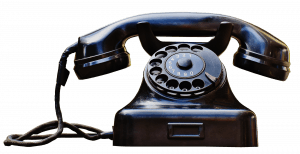“Science is about following your bliss, right? It’s about taking advantage of accidents and unexpected developments and pursuing them.”
An interview with Brad Postle, PhD
Professor of Psychology, University of Wisconsin-Madison
By: Michelle Johnson, October 19, 2018
Growing up, did you always want to be a scientist?
I did not know what I wanted to be when I grew up, and I ended up declaring the liberal arts major that had the latest deadline. So, I got a Government major, but I must have been interested in the mind-brain problem because in the spring semester of my senior year, I took cognitive psychology. I was studying these macro level theories of how nation states interact and so forth, and I was convinced that by understanding the factors that made an individual leader decide to do this or that, you could explain more variance than these abstract theories of how nations interact. It was the spring semester of my senior year, I took the class pass-fail, and with eight weeks left I went to the professor begging her to let me drop the class because it was mathematically impossible for me to pass. So, I have a “W(ithdraw)” on my transcript in Cognitive Psychology. And now that’s the class I teach.
What led to your interest in your current research topic?
If I give you a phone number and you to have to walk over to your desk to make the call, you’re performing a working memory task. What is the content of your conscious awareness during that period of time? Well, it’s dominated by the phone number that you’re thinking about. I trained in the nineties, when you didn’t say the “C word” ( “Consciousness”). I saw working memory was a scientifically respectable way to study  consciousness on the sly. I think it’s very different now, but at that time, if you were in a psychology department or a neuroscience department rather than in a philosophy department, it wasn’t something that you talked about. I’ve also just been seduced by the problems of visual attention and working memory for their own sake.
consciousness on the sly. I think it’s very different now, but at that time, if you were in a psychology department or a neuroscience department rather than in a philosophy department, it wasn’t something that you talked about. I’ve also just been seduced by the problems of visual attention and working memory for their own sake.
What has your experience been like with interdisciplinary work in the field?
Well, certainly within the neurosciences there are a lot of levels at which you can do the work. A colleague recently accused me of being a frustrated monkey electrophysiologist, because we work with healthy young adults, humans, but a lot of my reading and a lot of my teaching is about monkey electrophysiology because the behavioral tasks are similar, but the methods allow for more invasive and detailed recordings. At the end of the day I care about human cognition; I don’t care about monkey cognition or rodent cognition, per se, but I’m very aware of the fact that we need to inform our methods and models with results from other branches of our discipline where they can take different kinds of measurements.
If you could try a different career for a year, what would it be?
Probably music. As an adolescent and a young adult, I spent a lot of time playing guitar and writing songs and playing in bands, and then that kind of fell by the wayside as the career got started and as you have kids and family and so forth. But recently through a combination of accidents, a bunch of us who are all middle-aged, memory scientists came together, and we have this group called “Pavlov’s Dogz.” We’re on different continents and in different time zones, but we get together at meetings and we’ll rent a rehearsal space for a night or two and then book a club in the city where the meeting is in.
What’s the best piece of advice you’ve ever gotten?
I think the best piece of advice I’ve ever gotten was from my advisor, Suzanne Corkin, who said that “a grant is not a contract.” What she meant by that is that the grant writing process is in effect an exercise in convincing the panel that’s evaluating you that you have the wherewithal to come up with creative and rigorous scientific ideas, but that if you’re awarded the money, don’t be too constrained by what you said you were going to do. Science is about following your bliss, right? It’s about taking advantage of accidents and unexpected developments and pursuing them. If there’s something else that you’ve come across that’s exciting that would go in a different direction, but would potentially have a higher payoff, then you should feel unencumbered in making that choice.
To learn more about Dr. Postle’s lab and his work, click here.
To go back to the “Interviews with Scientists” page, click here.
